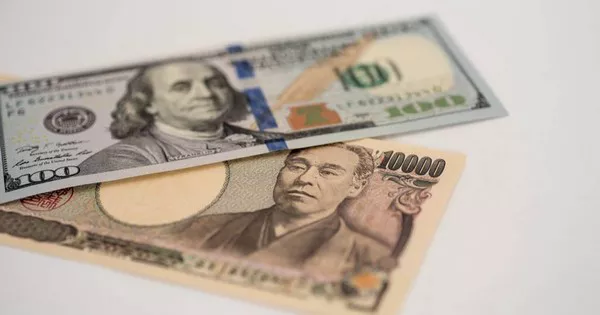Converting US dollars (USD) to Japanese yen (JPY) is a common financial transaction, especially for travelers, businesses, and investors dealing with the Japanese market. The process of currency exchange can be straightforward, but finding the most cost-effective and efficient method requires understanding the various options available. In this article, we will explore where to convert USD to yen, discussing the pros and cons of each method, and providing tips on how to maximize the value of your money.
Understanding Currency Exchange
Currency exchange involves converting one country’s currency into another. Exchange rates fluctuate constantly due to factors like economic conditions, political stability, and market demand. When converting USD to yen, the exchange rate will determine how many yen you receive for your dollars. Understanding how these rates work and where to get the best deal is essential for anyone needing to convert currency.
Exchange Rate Basics
Spot Rate: The current exchange rate at which a currency can be bought or sold for immediate delivery.
Bid-Ask Spread: The difference between the buying and selling price of a currency. Financial institutions profit from this spread.
Fees and Commissions: Some currency exchange providers charge fees or commissions on top of the exchange rate, affecting the total amount received.
1. Banks
Overview
Banks are one of the most common and convenient places to convert USD to yen. They offer reliable services and can handle large transactions. However, the exchange rates and fees offered by banks may not always be the most competitive.
Pros
Security: Banks are highly regulated, ensuring that your transactions are safe and secure.
Convenience: Many banks offer online currency exchange services, allowing you to order yen and pick it up at a local branch or have it delivered.
Large Transactions: Banks can handle large sums of money, making them a good option for businesses or individuals needing to convert significant amounts of currency.
Cons
Less Competitive Rates: Banks often offer less favorable exchange rates compared to other providers, as they tend to have higher overhead costs.
Fees: Banks may charge service fees, especially if you are not an account holder.
Best Practices
Compare Rates: Before converting your money, check the exchange rates offered by different banks. You may find better rates at one bank compared to another.
Ask About Fees: Inquire about any additional fees that may apply to the transaction, and factor these into your decision.
Consider Your Timing: Exchange rates fluctuate, so timing your transaction when the rate is more favorable can save you money.
See Also: Where to Exchange USD to GBP?
2. Currency Exchange Services
Overview
Currency exchange services specialize in converting money from one currency to another. These services can be found at airports, in city centers, or online. They often offer competitive rates and are widely accessible, making them a popular choice for travelers.
Pros
Competitive Rates: Many currency exchange services offer better rates than banks, especially for smaller amounts.
Availability: These services are often available in convenient locations, such as airports and major tourist areas, making them easily accessible for travelers.
Speed: Currency exchange services typically offer quick transactions, allowing you to get your yen immediately.
Cons
Fees: Some currency exchange services charge fees or have unfavorable bid-ask spreads, which can reduce the total amount of yen you receive.
Varying Quality: The quality of service can vary between providers, so it’s essential to choose a reputable exchange service.
Best Practices
Research Providers: Before using a currency exchange service, research their rates and fees online. Many providers have websites where you can compare their rates to others.
Avoid Airport Exchanges: Currency exchange services at airports often charge higher fees and offer worse exchange rates. If possible, convert your money before you arrive at the airport.
Bring Identification: Some currency exchange services may require identification, especially for larger transactions. Bring your ID to avoid any delays.
3. Online Currency Exchange Platforms
Overview
Online currency exchange platforms have become increasingly popular for converting USD to yen. These platforms allow you to exchange currency from the comfort of your home and often offer competitive rates and low fees.
Pros
Convenience: Online platforms allow you to convert currency without visiting a physical location. The yen can be delivered to your home or picked up at a nearby location.
Competitive Rates: Many online platforms offer better exchange rates than banks or physical currency exchange services.
Transparency: Online platforms often provide clear information about rates, fees, and the total amount you will receive, making it easier to compare options.
Cons
Delivery Times: If you choose to have yen delivered to your home, it may take a few days to arrive, which could be an issue if you need the currency immediately.
Security Concerns: While many online platforms are secure, there is always a risk when conducting financial transactions online. Ensure the platform is reputable and uses encryption to protect your information.
Best Practices
Compare Multiple Platforms: Different platforms offer different rates and fees, so take the time to compare options before making a decision.
Check Delivery Options: If you need yen quickly, choose a platform that offers expedited delivery or allows you to pick up the currency at a local location.
Use Secure Platforms: Only use platforms that are well-reviewed and have strong security measures in place to protect your financial information.
4. ATMs in Japan
Overview
Withdrawing yen from an ATM in Japan using a US debit or credit card is another option for converting currency. Many Japanese ATMs accept foreign cards, making it easy to get local currency once you arrive.
Pros
Convenience: ATMs are widely available in Japan, including at airports, convenience stores, and banks.
Competitive Rates: ATMs often provide better exchange rates than currency exchange services, as they typically use the interbank rate.
Immediate Access: Withdrawing from an ATM gives you immediate access to yen, which can be more convenient than ordering currency in advance.
Cons
Fees: Your home bank may charge foreign transaction fees or ATM withdrawal fees. Additionally, the Japanese bank may also charge a fee for using the ATM.
Daily Limits: ATMs may have daily withdrawal limits, which could be a problem if you need a large amount of yen.
Exchange Rate Fluctuations: The exchange rate applied may vary depending on when the transaction is processed, leading to slightly different amounts than expected.
Best Practices
Inform Your Bank: Notify your bank before traveling to Japan to avoid any issues with using your card abroad.
Check Fees: Before withdrawing yen, check with your bank to understand any fees that may apply. You may also want to withdraw larger amounts to minimize the impact of fixed fees.
Use ATMs at Banks: ATMs located at banks or post offices tend to be more reliable and may offer better rates than those at convenience stores or in tourist areas.
5. Peer-to-Peer (P2P) Currency Exchange
Overview
Peer-to-peer currency exchange platforms connect individuals looking to exchange currencies directly with each other. These platforms often offer more competitive rates by cutting out the middleman.
Pros
Lower Costs: P2P platforms often have lower fees and better exchange rates since they eliminate the need for banks or currency exchange services.
Transparency: These platforms provide detailed information about exchange rates and fees, allowing users to see exactly how much they will receive.
Flexibility: P2P exchanges offer flexibility in terms of transaction amounts and timing.
Cons
Security Risks: While many P2P platforms have security measures in place, there is still a risk when dealing with individuals rather than institutions.
Slower Transactions: Finding a match for your exchange request may take time, leading to slower transactions compared to other methods.
Limited Availability: P2P currency exchange is not as widely available or as well-known as other methods, which could limit options.
Best Practices
Choose Reputable Platforms: Only use well-known P2P platforms with strong security features and positive user reviews.
Be Cautious with Large Amounts: For large transactions, consider using more secure methods, such as banks or online platforms.
Monitor Exchange Rates: P2P platforms often allow you to set your desired exchange rate. Monitor rates and set a target that is favorable for you.
6. Foreign Exchange (Forex) Markets
Overview
For individuals or businesses involved in international trade or investment, the foreign exchange (forex) market offers a platform to convert large amounts of currency. Forex trading involves buying and selling currencies on a global market, and it requires a solid understanding of market dynamics.
Pros
Best Exchange Rates: Forex markets typically offer the best exchange rates, as they operate on a wholesale level.
Large Transactions: The forex market is ideal for large transactions, such as those conducted by businesses or investors.
Hedging: Forex markets allow businesses to hedge against currency risk, locking in favorable exchange rates for future transactions.
Cons
Complexity: Forex trading requires a deep understanding of market forces, technical analysis, and economic indicators.
Volatility: Exchange rates in the forex market can be highly volatile, which could lead to unexpected losses.
Accessibility: Forex trading is not suitable for casual currency conversion and is typically used by businesses and professional traders.
Best Practices
Work with a Broker: If you need to convert large amounts of USD to yen
Stay Informed: Keep up with global economic news and indicators that could affect exchange rates.
Use Limit Orders: When converting currency on the forex market, use limit orders to set the exchange rate at which you are willing to trade, helping to manage risk.
7. Travel Agencies and Hotels
Overview
Some travel agencies and hotels offer currency exchange services, especially in tourist-heavy areas. While these services can be convenient, they often come with higher fees and less favorable exchange rates.
Pros
Convenience: If you are staying at a hotel or booking through a travel agency, having the option to convert currency on-site can be convenient.
Immediate Access: These services provide immediate access to yen, which can be helpful in a pinch.
Cons
Higher Costs: Travel
Limited Amounts: These services may have limits on the amount of currency you can exchange.
Best Practices
Use as a Last Resort: Consider using travel agency or hotel currency exchange services only if you have no other options available.
Compare Rates: If you must use these services, compare rates and fees with other options to ensure you are not overpaying.
Exchange Small Amounts: If the rates are unfavorable, consider exchanging only a small amount of money to cover immediate expenses, and look for better options later.
Conclusion
Converting USD to yen can be done through various methods, each with its own advantages and disadvantages. Whether you choose to use a bank, currency exchange service, online platform, ATM, P2P platform, forex market, or even a travel agency, it’s important to compare rates, consider fees, and choose the method that best suits your needs. By understanding the different options available, you can maximize the value of your money and ensure a smooth currency conversion process.
[inline_related_posts title=”You Might Be Interested In” title_align=”left” style=”list” number=”3″ align=”none” ids=”2963,2968,2973″ by=”categories” orderby=”rand” order=”DESC” hide_thumb=”no” thumb_right=”no” views=”no” date=”yes” grid_columns=”2″ post_type=”” tax=””]































